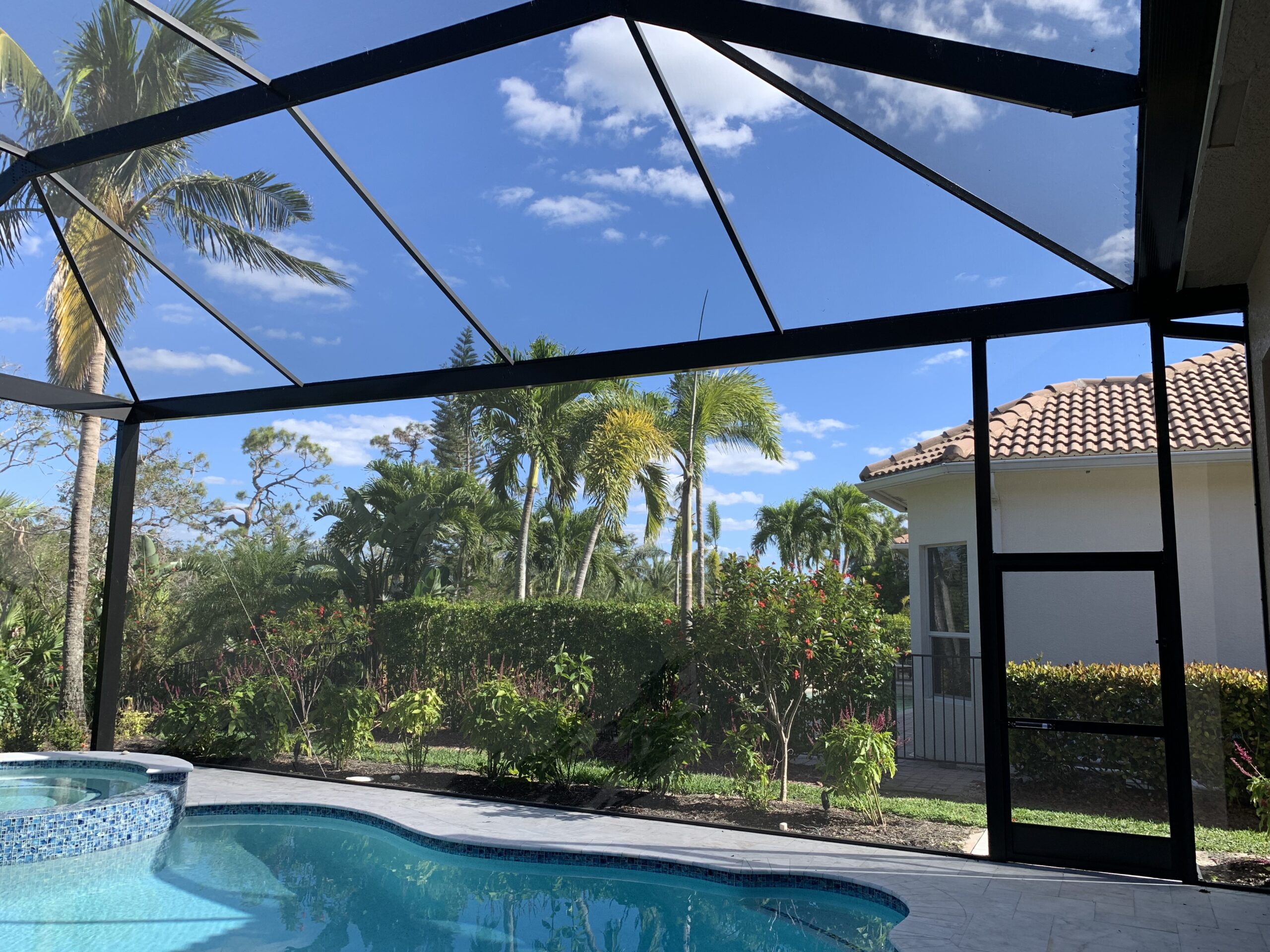When people think about pool enclosures, they often focus on their convenience, aesthetics, and ability to keep bugs and debris out. However, one of the most overlooked advantages of a pool enclosure is its positive impact on the environment. By reducing water waste, lowering chemical usage, and improving energy efficiency, pool enclosures benefit not only homeowners but also the surrounding community and ecosystem.
How Pool Enclosures Positively Impact the Environment
1. Water Conservation
Evaporation is a major contributor to water loss in swimming pools, especially in hot and humid climates. A screened or glass enclosure helps reduce evaporation by shielding the water from direct sunlight and wind. This means:
✅ Less need to refill the pool frequently
✅ Lower demand on local water resources
✅ Reduced strain on municipal water systems
For areas prone to droughts or water restrictions, having a pool enclosure is a responsible way to conserve water while still enjoying a private pool.
2. Reduced Chemical Use
Pools require chlorine and other chemicals to keep the water clean and safe. However, exposure to the sun breaks down chlorine faster, requiring frequent replenishment. Pool enclosures help:
✅ Reduce UV exposure, allowing chemicals to last longer
✅ Minimize debris, which means fewer chemicals are needed to maintain balance
✅ Lower the risk of chemical runoff into local soil and waterways
By using fewer chemicals, pool owners decrease their impact on nearby ecosystems, helping to protect local plant life, wildlife, and groundwater quality.
3. Energy Efficiency and Lower Carbon Footprint
Heating a pool consumes a significant amount of energy, especially during cooler months. An enclosure helps retain heat, reducing the need for heaters or excessive electricity use. Benefits include:
✅ Lower energy bills – A covered pool maintains its temperature more efficiently
✅ Less reliance on fossil fuels – If using gas-powered heaters, less fuel is burned
✅ Reduced greenhouse gas emissions – Using less energy means a lower carbon footprint
For homeowners with solar pool heating, an enclosure enhances efficiency by keeping heat inside, maximizing the benefits of renewable energy.
4. Cleaner Air and Less Poolside Pollution
An open-air pool can attract dust, pollen, leaves, and other pollutants that degrade water quality and require additional cleaning efforts. Pool enclosures act as natural filters by:
✅ Blocking debris from entering the pool
✅ Reducing the use of electric or gas-powered pool vacuums
✅ Preventing excess pollen and allergens from circulating in the air
This creates a healthier outdoor environment for homeowners and neighbors alike.
5. Protecting Local Wildlife
Uncovered pools pose a risk to local wildlife, as small animals like frogs, birds, and lizards can fall in and struggle to escape. Pool enclosures act as a protective barrier, preventing:
✅ Accidental drownings of small animals
✅ Unwanted pests from contaminating the water
✅ Disruptions to the local ecosystem caused by displaced wildlife
By keeping local wildlife safe and undisturbed, pool enclosures help maintain biodiversity in residential areas.
Why This Matters to Our Community
The environmental benefits of pool enclosures extend beyond individual homeowners. They contribute to the overall sustainability of our neighborhoods by:
Reducing strain on public water and energy resources
Keeping shared air and water cleaner for everyone
Helping protect native wildlife and plant life
In cities and suburban areas where many homes have pools, the cumulative impact of enclosures can be significant. By making responsible choices, pool owners can positively influence their environment and encourage others to do the same.
Final Thoughts
Investing in a pool enclosure is more than just a personal convenience—it’s a decision that benefits the environment and the community. By conserving water, reducing chemical use, saving energy, and protecting local wildlife, enclosures make pool ownership more eco-friendly. As we all work toward a more sustainable future, small choices like these make a big difference in preserving the places we live and the world around us.




